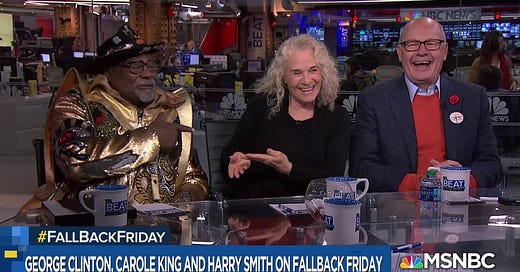Valuable labor versus corporate extraction
Technology is changing things, but not always the corporations themselves
Hi!
Ari here—welcome back to longtime readers, and welcome aboard to those of you who just joined the list!
My new piece is below, and some background for new people:
I will be emailing you the newsletter on Tuesdays. It goes out to everyone.
Full subscribers get my extra Fridays essays on culture, music and conversations with subscribers in the comments. F…
Keep reading with a 7-day free trial
Subscribe to Ari Melber to keep reading this post and get 7 days of free access to the full post archives.



